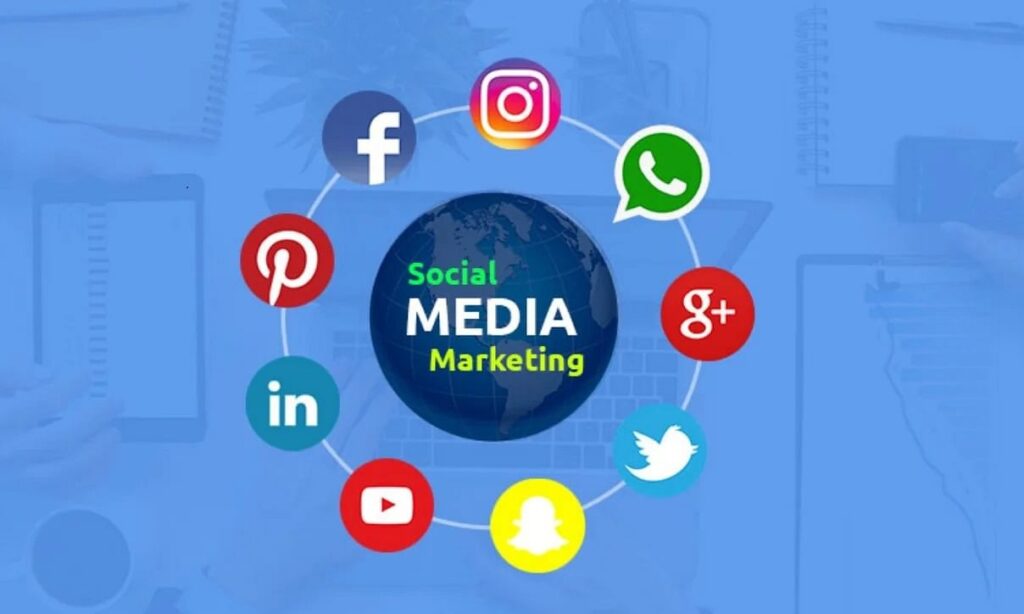Social Media Marketing: Unlocking the Power of Online Engagement
In the digital age, social media has become an integral part of our lives. People of all ages and backgrounds are actively using platforms like Facebook, Instagram, Twitter, and LinkedIn to connect, share, and engage. As a result, businesses are increasingly turning to Social Media Marketing (SMM) to tap into this vast and highly engaged audience. In this article, we will explore the world of Social Media Marketing, its significance, and how you can offer these services to help businesses thrive in the online space.
Social Media Marketing is the practice of using social media platforms to promote products, services, or brands. It involves creating and sharing content on these platforms to achieve marketing and branding goals. SMM encompasses a wide range of activities, from posting regular updates and engaging with the audience to running paid advertising campaigns.

Why is Social Media Marketing Important?
- Broad Audience Reach: Social media platforms have billions of active users. This provides businesses with an unprecedented opportunity to reach a vast and diverse audience.
- Cost-Effective: Compared to traditional advertising methods, SMM is cost-effective. Setting up social media profiles and posting organic content is usually free, and paid advertising can be highly targeted, maximizing the return on investment.
- Brand Building: Social media allows businesses to establish and strengthen their brand identity. Consistent branding across platforms helps build brand recognition and trust.
- Engagement and Interaction: Social media enables direct interaction with the audience. Businesses can engage with customers, answer questions, and gather valuable feedback in real time.
- Data and Insights: Social media platforms provide valuable insights and data on user behavior. This data can be used to refine marketing strategies and make informed decisions.
Key Components of Social Media Marketing
- Content Creation: Creating high-quality, relevant, and engaging content is at the heart of SMM. This includes text, images, videos, infographics, and more. Content should resonate with the target audience and align with the brand’s message.
- Audience Research: Understanding the target audience is crucial. Businesses need to identify their ideal customers and tailor content to their interests, preferences, and demographics.
- Platform Selection: Not all social media platforms are created equal. The choice of platforms should be based on where the target audience is most active. For example, Instagram is popular among younger demographics, while LinkedIn is often used for professional networking.
- Posting Schedule: Consistency is key in SMM. Posting schedules should be established to ensure a steady flow of content. Tools like social media management platforms can help schedule posts in advance.
- Engagement: Engaging with the audience is vital. Respond to comments, messages, and mentions promptly. Encourage conversations and build a community around the brand.
- Paid Advertising: Social media platforms offer various advertising options, including sponsored posts, display ads, and video ads. Paid advertising can help businesses reach a wider audience and drive specific actions, such as website visits or product purchases.
The Social Media Marketing Process
- Client Consultation: Begin by understanding your client’s goals, target audience, and current social media presence. Conduct a thorough analysis to identify strengths, weaknesses, opportunities, and threats (SWOT analysis).
- Strategy Development: Based on the client’s objectives, create a comprehensive SMM strategy. Outline the content calendar, posting schedule, and advertising budget. Ensure alignment with the client’s brand identity and message.
- Content Creation: Develop engaging content that resonates with the target audience. This may include blog posts, videos, infographics, and social media posts. Maintain a consistent posting schedule.
- Audience Engagement: Monitor social media channels regularly and engage with the audience. Respond to comments, answer questions, and foster a sense of community.
- Paid Advertising: Set up and manage paid advertising campaigns on relevant platforms. Use targeting options to reach the right audience.
- Performance Analysis: Regularly track and analyze the performance of SMM efforts. Measure key metrics such as reach, engagement, conversion rates, and return on investment (ROI)
Measuring Social Media Marketing Success
- Follower Growth: Track the growth of followers and fans on social media profiles.
- Engagement Metrics: Measure likes, comments, shares, and other engagement metrics to gauge content performance.
- Website Traffic: Analyze the amount of traffic driven to the website from social media platforms.
- Conversion Rates: Monitor the number of conversions, such as newsletter sign-ups, product purchases, or form submissions, resulting from social media efforts.
- ROI: Calculate the return on investment by comparing the cost of advertising with the revenue generated through social media campaigns.
- Customer Feedback: Collect and analyze customer feedback and reviews on social media platforms.
Conclusion
Social Media Marketing is a powerful tool for businesses seeking to expand their online presence, engage with their audience, and drive growth. As a service provider in this field, your role is to help businesses navigate the complex world of social media
